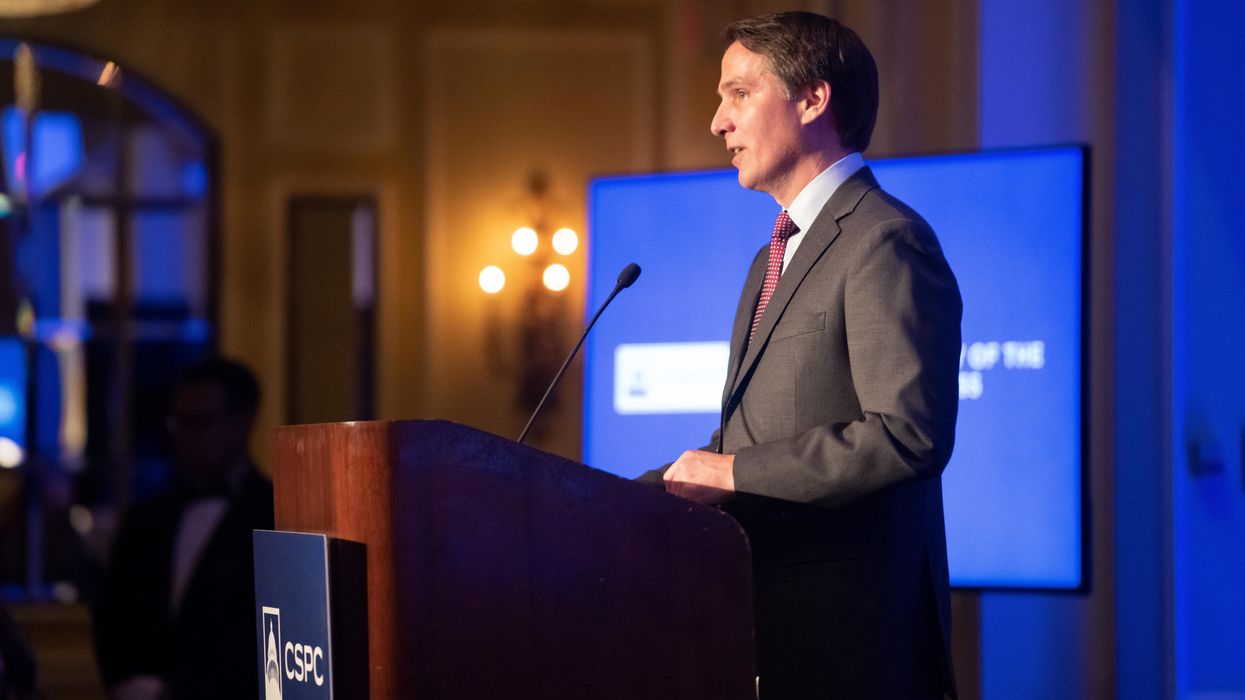Not all former members of Congress become big-money lobbyists; some even devote new careers to fixing the system they were once part of. Glenn Nye, for example, lasted just one term as the centrist Democratic congressman for the Atlantic coastal communities of Virginia. He lost in the GOP wave of 2010 and advised several technology companies and investment firms before signing on three years ago to run the Center for the Study of the Presidency & Congress, a think tank working to break Washington's gridlock by incubating consensus-focused leaders for the executive and legislative branches. "I learned from the inside how our political system incentivizes dramatic partisanship," he says, and is now "sincerely hoping to be able to leave a better functioning political system than we found." His answers have been edited for clarity and length.
What's the tweet-length description of your organization?
Incentivizing civility and compromise to fix a deadlocked system.
Describe your very first civic engagement.
My first civic acts involved public displays of support for families of military service-people deployed to the first Gulf War when I was in high school in Norfolk. I cast my first vote, cast absentee when I was in college at Georgetown, in the 1992 presidential election.
What was your biggest professional triumph?
Securing the enactment of a law that provided a tax break to small businesses hiring returning veterans of the Iraq and Afghanistan wars. Working on military family issues and veteran issues tended to be an area where we could find bipartisan cooperation in Congress, despite efforts by some in both parties to polarize every issue.
And your most disappointing setback?
Failing to pass anti- gerrymandering reform during my term in Congress has been a decade-long disappointment. I co-sponsored a bill to impose criteria on states to use independent commissions to draw congressional boundaries — but failed to convince too many colleagues to support it. My hope was revived seeing how successful efforts have taken root at the state level. Still hoping to translate that to a federal requirement some day.
How does your identity influence the way you go about your work?
Growing up in a military community teaches you to approach problems pragmatically, to get at the incentives that drive behavior. That is why my team focuses our political reform work on changing incentives in order to produce more cooperative and functional policy making.
What's the best advice you've ever been given?
My first decade after college was primarily overseas in the foreign service, which took me from the Balkans to Afghanistan to the Middle East. When my tour in Iraq within the U.S. Agency for International Development ended in 2017, I was deciding between running for office or studying public policy. "Run for office," my dad advised. "Even if you lose, you'll learn enough about politics, your community and yourself to be able to teach the course."
Create a new flavor for Ben & Jerry's.
The Ben & Gerrymander: raspberry and blueberry ice cream divided by oddly twisted pretzel sticks — and with a slight smoky flavor from a special backroom production facility.
What's your favorite political movie or TV show?
"The Distinguished Gentleman," the 1992 comedy with Eddie Murphy as a newly elected outsider congressman. It's a great parody on the rigged nature of campaign finance and influence.
What's the last thing you do on your phone at night?
Add new photos of our two sons on our family photo sharing app.
What is your deepest, darkest secret?
I am a big fan of the Katy Perry song "Firework." (This is just between us, right?)




















Trump & Hegseth gave Mark Kelly a huge 2028 gift